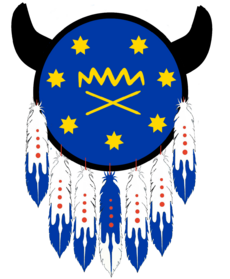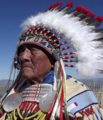Council of Seven Fires: Difference between revisions
No edit summary |
|||
| Line 38: | Line 38: | ||
File:TochoChief.png| Chief<br>'''Wohali'''<br>Tocho | File:TochoChief.png| Chief<br>'''Wohali'''<br>Tocho | ||
File:NokosiChief.png| Chief<br>'''Onacona'''<br>Nokosi | File:NokosiChief.png| Chief<br>'''Onacona'''<br>Nokosi | ||
File:MahkahChief.png| | File:MahkahChief.png| Chieftess<br>'''Ahyoka'''<br>Mahkah | ||
File:KwatokoChief.png| Chief<br>'''Chetan'''<br>Kwatoko | File:KwatokoChief.png| Chief<br>'''Chetan'''<br>Kwatoko | ||
File:ChosoviChief.png| Chief<br>'''Diwali'''<br>Chosovi | File:ChosoviChief.png| Chief<br>'''Diwali'''<br>Chosovi | ||
Revision as of 23:17, 19 June 2019
This article is incomplete because it is pending further input from participants, or it is a work-in-progress by one author. Please comment on this article's talk page to share your input, comments and questions. Note: To contribute to this article, you may need to seek help from the author(s) of this page. |
Council of Seven Fires ᏧᎾᏓᏱᎵᏓᏍᏗ ᏂᏛᎴᏅᏓ ᎦᎵᏉᎩ ᎠᏥᎳ | |
|---|---|
 | |
| Type | |
| Type | Tribal Council |
| Leadership | |
Tecumseh since November 2002 | |
| Seats | 7 chiefs |
| Elections | |
Last election | November 6, 2012 |
Next election | November 6, 2022 |
| Meeting place | |
| Kestejoo | |
The Council of Seven Fires (Meoquanee: ᏧᎾᏓᏱᎵᏓᏍᏗ ᏂᏛᎴᏅᏓ ᎦᎵᏉᎩ ᎠᏥᎳ) is the legislative council of the Meoquanee Nation. The council meets four times per year, at the beginning of each season, with additional special sessions, which can be requested by any of the chiefs. The council is overseen by the High Chieftain who is elected every ten years from among his peers. The current chieftain is Tecumseh of the Ehawee who has filled the position since 2002.
History
Prior to 1794, the tribes of the Meoquanee had little interaction with eachother outside of trade and every 4 years they would all come together for a celebration and to share stories. However, in 1794 Tuskaluza succeeded in uniting the tribes during the -PLACEHOLDER- war, he established a council that compromised of the chiefs of each of the seven tribes known then as the Great Council of Braves with himself at the head as the High Cheftian. After the war, Tuskaluza saw the benefit of keeping the tribes as one and reformed the council into what is today the Council of Seven Fires. Tuskaluza remained as High Chiefian of the council until his death in 1837. After his passing, the question of who would succeed him was brought before the council which decided to elect the new High Chieftain every years among themselves which remains to this day.






